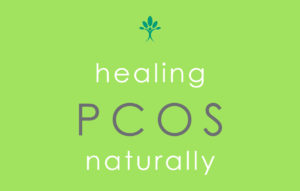by Dr. Sara Kinnon
With the Winter season upon us, so comes cold and flu season. I think it is safe to say nobody wants to get sick! We do our best to keep ourselves healthy and avoid the common cold. That being said, we are inundated with products claiming to boost our immune system and cure the common cold. Most people do not consider probiotics to be on this list. Taking a probiotic supplement is one of the easiest, most affordable, and most effective supplements you can take through the winter season.
Probiotics literally means, “for life”. They are the bacteria that help to maintain the microflora of our intestinal tract. Over 400 million types of bacteria exist in our digestive system that work to help maintain healthy digestion, as well as immune function. How do probiotics help our immune system? Most people do not know that a significant portion of our immune system exists in our digestive tract. In order for the immune system to function optimally, we must provide the body with the necessary nutrients and optimal environment. Probiotics help maintain the integrity of the mucosal barrier, just like a fertilizer maintains a lawn. Taking probiotics insures that the mucosal barrier is intact, preventing colonization by pathogens. They stimulate the Gut Associated Lymphoid Tissue (GALT) to initiate the immune response . Having beneficial bacteria is critical to good health, as they are involved in the digestion of carbohydrates, the production of nutrients such as Vitamins K and B, they allow for mineral absorption, the prevention and control of the allergic response, and they breakdown toxins and xenobiotics. When we have dsybiotic flora, we can experience adverse effects. These range from consumption of vitamins and minerals, increased production of ammonia, to a dysfunctional immune response and activation of procarcinogens. The concept of probiotics being beneficial to our immune system is not new. In fact, Elie Metchnikoff, a Russian Nobel prize winner, was one of the first to document the importance of maintaining intestinal flora in order to prevent infection and maintain health. He wrote a groundbreaking book on this topic in 1907, titled The New Hygiene.
In order to maintain a healthy intestinal microflora it is advised to consume many prebiotics. Prebiotics are essentially the fuel needed to feed the beneficial bacteria, the probiotics. They are oligosaccharides, a type of carbohydrate, that is not digested but travels to the colon where it is the ‘food’ for the beneficial bacteria. Prebiotics are readily available in common foods we eat such as; garlic, beans, carrots, onions, bananas, oats, Jerusalem artichokes, and other fiber sources. Insuring adequate consumption of these foods is one way we can help provide our bodies with the necessary tools needed for healthy intestinal microflora.
It is easy to assume that if we provide our bodies with enough prebiotics, we don’t need to supplement with probiotics. This isn’t necessarily the case. If we have had a course of antibiotics, consume sugar, travel, or are overworked and fatigued, we are likely deficient in healthy flora. Probiotics are also deficient in people that have chronic conditions like skin or food allergies, Irritable bowel syndrome, bladder infections, yeast infections, and in those that are sick often, or immune-compromised. If our diet is high in saturated fat and meat products, or we lack adequate stomach acids, or suffer from pancreatic insufficiency then we are also at risk for deficient beneficial bacteria.
There is a plethora of probiotics on the market. What you see is not always what you get. It is important that if you are spending the money supplementing with probiotics, that you are supplementing with a quality product. A good probiotic will actually have what it says it has on its label and be able to withstand stomach acid in order to make it to the intestines. This means that if it says 8 billion acidophilus, then it has 8 million acidophilus. The labels should explain the strains of bacteria contained in the supplement, the viability of the bacteria, and it should state they be stored in the refrigerator. A high quality probiotic also includes prebiotics, often seen as FOS (fructoligosaccarides), that prolong the life of the bacteria. There are many different strains of probiotics. Each strain is important, but some strains may be more beneficial than others.
As we are approaching the height of the cold and flu season, we need to bolster our immune system with the necessary defenses needed to ward off illness. The Winter season is demanding on our immune system, with increased exposure to germs, stressful schedules, and poor diets. Adding probiotics to your daily regime is a simple and effective way to keep the cold and flu at bay.



Comments are closed.